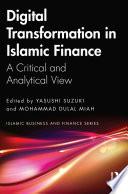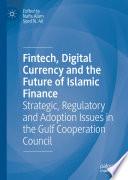
Ethical Dimensions of Islamic Finance
Theory and Practice
This book provides an introductory theoretical foundation of the ethics embedded in Islamic economics and finance, and it shows how this ethical framework could pave the way to economic and social justice. It demonstrates how Islamic finance—a risk-sharing and asset-backed finance—has embedded universal values, ethical rules, and virtues, and how these qualities may be applied to a supposedly value-neutral social science to influence policy-making. This book argues that ethical and responsible finance, such as Islamic finance, could lead the efforts to achieve sustainable economic development. Iqbal and Mirakhor then conduct a comparative analysis of Islamic and conventional financial systems and present Islamic finance as an alternative that can address today’s growing problems of inequality, social injustice, financial repression, unethical leadership, and lack of opportunity to share prosperity.
- ISBN 13 : 9783319882338
- ISBN 10 : 3319882333
- Judul : Ethical Dimensions of Islamic Finance
- Sub Judul : Theory and Practice
- Pengarang : Zamir Iqbal, Abbas Mirakhor, Abbas Mirakhor, Abbas Mirakhor, Abbas Mirakhor, Abbas Mirakhor,
- Kategori : Business & Economics
- Penerbit : Palgrave Macmillan
- Bahasa : en
- Tahun : 2018
- Halaman : 192
- Google Book : http://books.google.co.id/books?id=om_ewQEACAAJ&dq=intitle:Islamic+Microeconomics&hl=&source=gbs_api
-
Ketersediaan :
This book provides an introductory theoretical foundation of the ethics embedded in Islamic economics and finance, and it shows how this ethical framework could pave the way to economic and social justice.









